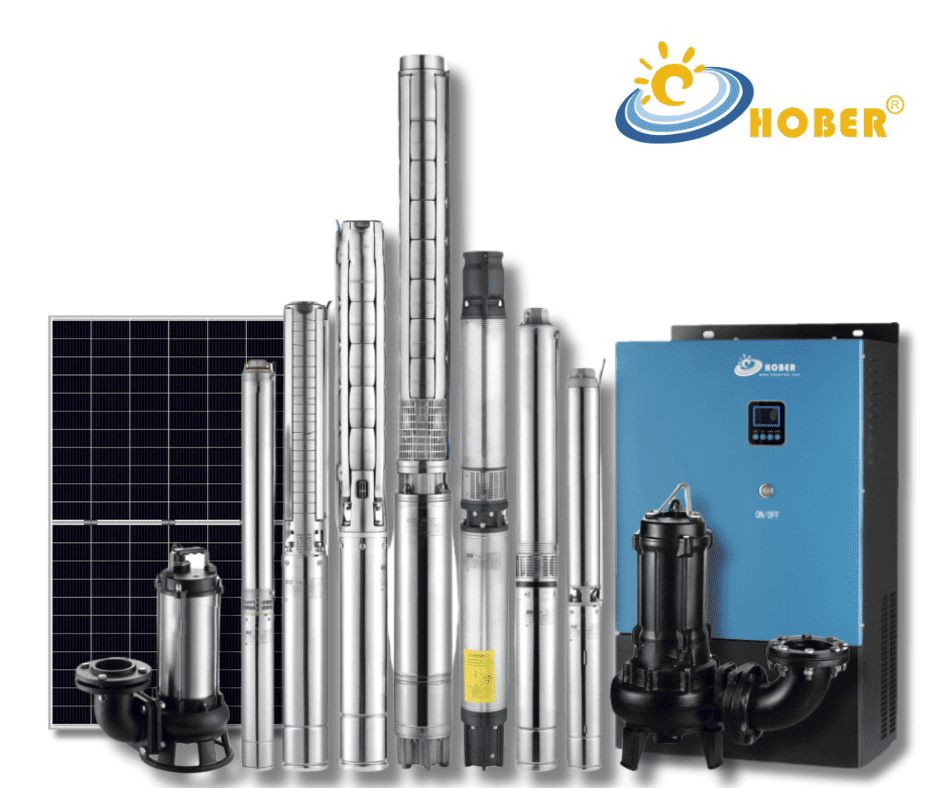Why Go Solar?
Rising electricity costs and unreliable grids make powering water pumps a challenge. Traditional electric pumps depend heavily on fossil-fueled energy. Converting your existing pump to solar is a smart, sustainable upgrade—without replacing your current pump.
How to Convert an Electric Water Pump to Solar Power
To convert an electric water pump to solar power, you’ll need solar panels, a charge controller, a solar pump inverter, and optionally, batteries. The solar panels generate DC electricity, which the inverter converts to AC for the pump. Ensure your system’s wattage matches your pump’s needs, especially for 1HP or larger models.
Let’s break down the process step by step, so you can confidently set up your solar-powered pumping system without wasting time or money.
💡 How do I convert my electric water pump to solar?
The basic conversion involves four main components:
- Solar Panels – These collect sunlight and generate DC electricity.
- Charge Controller – Regulates voltage to prevent battery damage (optional if not using batteries).
- Solar Pump Inverter – Converts DC from the panels to AC for your existing pump.
- Batteries (optional) – For water access at night or during cloudy weather.
Once your components are ready, connect the solar panels to the inverter, then to your pump—just as you’d connect it to an AC source. Always check compatibility and voltage matching.
⚙️ Can you convert an electric pump to solar?
Yes, you absolutely can. In fact, it’s common in off-grid locations and farms. Most standard AC electric pumps (like 0.5–2HP) can run on solar if paired with the right inverter.
You don’t need to replace the pump—you just need to ensure your solar pump conversion kit includes compatible components. If your pump is DC, it may even run directly off panels.
⚡ How to run an AC water pump with solar power?
To run an AC pump, focus on these:
- Inverter: It should handle your pump’s wattage and surge capacity.
- Solar Panel Capacity: Multiply your pump’s running wattage by 1.5x to determine how many solar watts you need.
- Voltage Matching: For example, a 220V pump will need a system that delivers consistent 220V output from the inverter.
Some systems include solar powered pool pump conversion kits, making this process easier for homeowners.
🧮 Can I run a 1HP water pump on solar power?
Yes. A 1HP pump (~750W) needs at least:
- 4 x 400W panels (total ~1600W, for sunny days)
- 1.5–2kW inverter
- Optional battery bank for backup
- Strong mounting to support panel angle and stability
Use a solar panel for 1HP water pump specifically rated for agricultural or high-duty usage if you plan to run it daily.
🔌 What is a solar pump inverter and how does it work?
A solar pump inverter converts the DC power from your solar panels into AC power that your pump can use. It also regulates the voltage and frequency to ensure smooth pump operation.
Some inverters also allow hybrid use—where you can plug in grid or generator power as a backup when solar isn’t available. Learn more about solar inverters →
📦 What’s included in a solar pump conversion kit?
A solar pump conversion kit often includes:
- Pre-sized solar panels
- A compatible MPPT Hober Solar Pump inverter
- Connection cables
- Mounting brackets
- Optional batteries and controller
For pool systems, solar powered pool pump conversion kits may include special waterproof or timer-based controls too.
🔋 How much solar power do I need for a 220V well pump?
Let’s say you have a 220V 1HP well pump. You’ll likely need:
- 1600W+ of solar panels
- Inverter rated for 220V output and 2kW peak load
- Possibly a solar pump inverter designed for deep well starting surges
Your solar power for 220 well pump setup should always have 30–40% extra capacity to handle inefficiencies and weather variation.
🤔 Is a solar well pump better than an electric one?
In many cases—yes.
Pros:
- Zero electricity cost
- Off-grid capability
- Eco-friendly
- Low maintenance
Cons:
- High upfront cost
- Weather-dependent unless battery-backed
If you’re in a sunny region and rely heavily on water pumping, switching to a solar well pump is a smart move. It works especially well for a solar water pump for home irrigation or livestock watering.
✅ In Summary
Switching your water pump to solar isn’t just eco-friendly—it’s a smart, long-term investment. Let me know if you’ve done your own DIY solar upgrade, or drop any questions below—I’d love to help!

